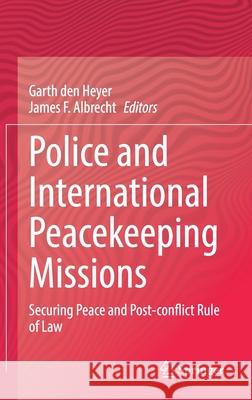Police and International Peacekeeping Missions: Securing Peace and Post-Conflict Rule of Law » książka
topmenu
Police and International Peacekeeping Missions: Securing Peace and Post-Conflict Rule of Law
ISBN-13: 9783030778996 / Angielski / Twarda / 2021 / 300 str.
Police and International Peacekeeping Missions: Securing Peace and Post-Conflict Rule of Law
ISBN-13: 9783030778996 / Angielski / Twarda / 2021 / 300 str.
cena 605,23
(netto: 576,41 VAT: 5%)
Najniższa cena z 30 dni: 578,30
(netto: 576,41 VAT: 5%)
Najniższa cena z 30 dni: 578,30
Termin realizacji zamówienia:
ok. 22 dni roboczych.
ok. 22 dni roboczych.
Darmowa dostawa!
Kategorie:
Kategorie BISAC:
Wydawca:
Springer
Język:
Angielski
ISBN-13:
9783030778996
Rok wydania:
2021
Wydanie:
2021
Ilość stron:
300
Waga:
0.59 kg
Wymiary:
23.39 x 15.6 x 1.75
Oprawa:
Twarda
Wolumenów:
01
Dodatkowe informacje:
Wydanie ilustrowane











